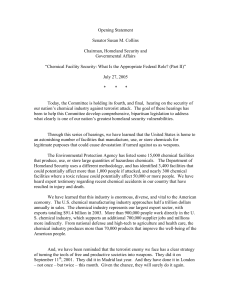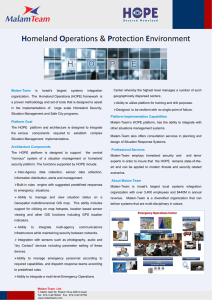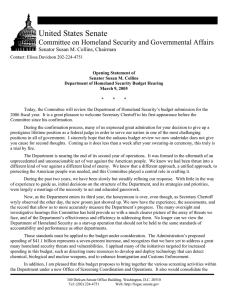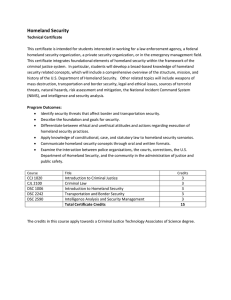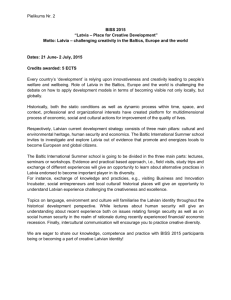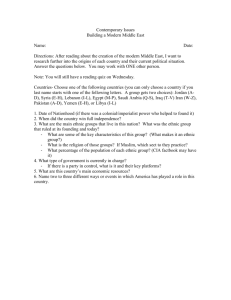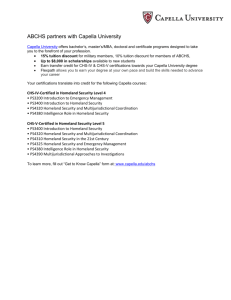Abstract - Race, Ethnicity and Place Conference
advertisement
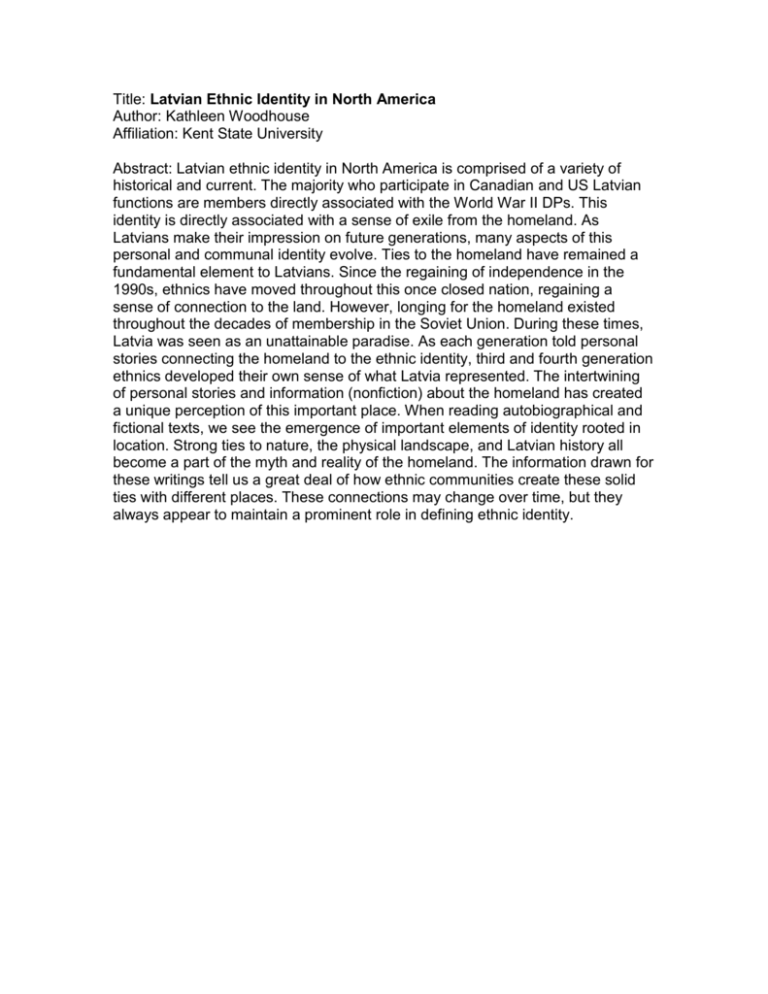
Title: Latvian Ethnic Identity in North America Author: Kathleen Woodhouse Affiliation: Kent State University Abstract: Latvian ethnic identity in North America is comprised of a variety of historical and current. The majority who participate in Canadian and US Latvian functions are members directly associated with the World War II DPs. This identity is directly associated with a sense of exile from the homeland. As Latvians make their impression on future generations, many aspects of this personal and communal identity evolve. Ties to the homeland have remained a fundamental element to Latvians. Since the regaining of independence in the 1990s, ethnics have moved throughout this once closed nation, regaining a sense of connection to the land. However, longing for the homeland existed throughout the decades of membership in the Soviet Union. During these times, Latvia was seen as an unattainable paradise. As each generation told personal stories connecting the homeland to the ethnic identity, third and fourth generation ethnics developed their own sense of what Latvia represented. The intertwining of personal stories and information (nonfiction) about the homeland has created a unique perception of this important place. When reading autobiographical and fictional texts, we see the emergence of important elements of identity rooted in location. Strong ties to nature, the physical landscape, and Latvian history all become a part of the myth and reality of the homeland. The information drawn for these writings tell us a great deal of how ethnic communities create these solid ties with different places. These connections may change over time, but they always appear to maintain a prominent role in defining ethnic identity.

